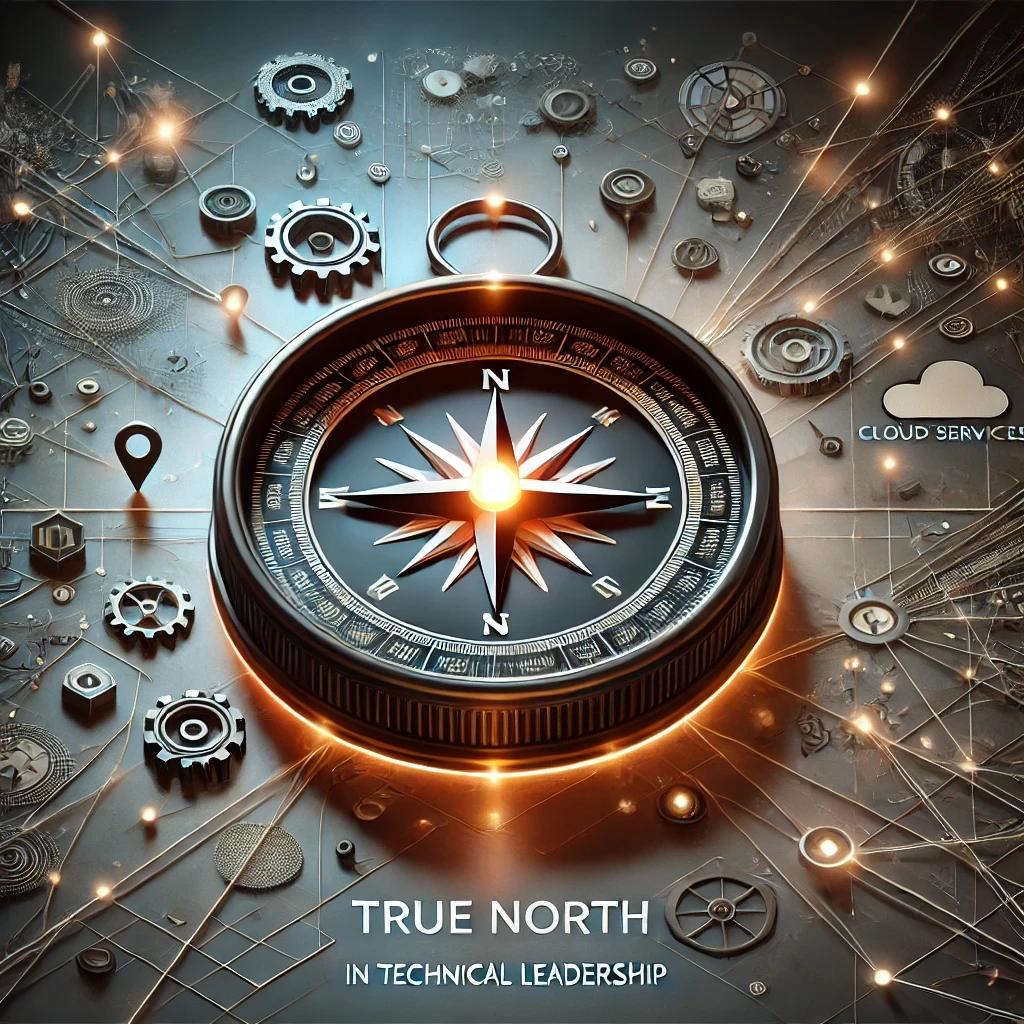What is a technical leader? Technical leadership plays a crucial role in guiding engineering teams toward success. It involves more than managing projects and people—it requires a deep understanding of technical work and the ability to make strategic decisions.
A technical leader combines technical expertise with leadership skills to drive innovation, mentor team members, and efficiently meet project objectives.
Technical leaders wear multiple hats, balancing technical knowledge with people management. They set the vision for their teams, encourage collaboration, and foster a culture of continuous learning. These professionals must stay current with industry trends while also developing strong communication and problem-solving abilities.
Effective technical leaders drive project success by setting achievable goals, tracking key performance indicators, and analyzing user needs. They leverage their experience to find efficient solutions to complex problems, all while inspiring and motivating their teams to reach their full potential.
Key Takeaways
- Technical leaders combine technical expertise with strategic vision and people management skills.
- Effective technical leadership involves guiding teams, fostering collaboration, and driving innovation.
- Successful technical leaders balance technical knowledge with strong communication and problem-solving abilities.
Table of Contents
The Role of a Technical Leader
Technical leaders guide teams, make key decisions, and bridge the gap between technical and business domains. They leverage their expertise to drive innovation and ensure project success.
Defining Leadership Roles
Technical leaders play a crucial role in bridging technical requirements and business objectives. They provide direction and vision for their teams and align technical efforts with organizational goals.
These leaders often serve as mentors, sharing knowledge and fostering skill development among team members. They may not always have direct reports but act as key advisors in their areas of expertise.
Technical leaders come in various forms. Some focus on specific domains, serving as go-to experts for complex issues. Others take on broader management responsibilities, overseeing multiple projects or teams.
Responsibilities and Expectations
Technical leaders are responsible for establishing and implementing a vision that guides their team toward technical excellence. They make critical technical decisions, considering both short-term needs and long-term implications.
These leaders must stay current with industry trends and emerging technologies. They evaluate new tools and methodologies, determining their potential impact on projects and processes.
Communication is a key aspect of the role. Technical leaders translate complex concepts for non-technical stakeholders and ensure clear understanding across teams.
They also manage risks, anticipate challenges, and develop strategies to overcome obstacles. This involves balancing technical debt, resource allocation, and project timelines.
Core Technical Skills for Leadership
Technical leaders need a strong foundation of technical expertise and hands-on coding abilities. These skills enable them to guide teams effectively, make informed decisions, and maintain credibility among their peers.
Technical Expertise and Knowledge
Technical expertise is crucial for effective leadership in technology roles. Leaders must stay current with industry trends, emerging technologies, and best practices. They should have a deep understanding of:
- System architecture
- Software development methodologies
- Cloud computing platforms
- Database management systems
- Network security protocols
This knowledge allows leaders to make informed decisions about technology choices and project direction. They can evaluate technical solutions proposed by team members and provide valuable insights.
Leaders should also cultivate expertise in specific domains relevant to their organization’s focus. This might include machine learning, blockchain, or IoT technologies. Technical leaders can effectively guide their teams through complex challenges by maintaining a broad and deep knowledge base.
Coding Proficiency and Code Reviews
While technical leaders may not code full-time, maintaining coding proficiency is essential. This skill allows them to:
- Understand the challenges faced by their team
- Provide hands-on assistance when needed
- Evaluate code quality and performance
Leaders should be able to write clean, efficient code and follow best practices. They should also be familiar with version control systems and continuous integration/continuous deployment (CI/CD) pipelines.
Code reviews are a critical responsibility for technical leaders. They should be able to:
- Identify potential bugs and security vulnerabilities
- Suggest improvements in code structure and efficiency
- Ensure adherence to coding standards and best practices
By actively participating in code reviews, leaders can maintain code quality, mentor team members, and foster a culture of continuous improvement.
Essential Soft Skills
Technical leaders require more than just technical expertise. Effective communication, collaboration, and critical thinking are crucial for guiding teams to success. These soft skills complement technical knowledge and enable leaders to navigate complex challenges.

Effective Communication
Technical leaders must excel at conveying complex ideas. They need to articulate complicated technical concepts to both technical and non-technical stakeholders. This skill is essential for aligning team goals with organizational objectives.
Clear communication also involves active listening. Leaders should encourage open dialogue within their teams, fostering an environment where ideas are freely shared.
Written communication is equally important. Technical leaders often need to prepare reports, documentation, and project proposals. Concise, well-structured written materials help ensure information is accurately disseminated across the organization.
Collaboration and Teamwork
Teamwork is a critical soft skill for technical leaders. It is particularly hard for new leaders. They must create an environment that promotes cooperation and mutual support among team members. This involves understanding individual strengths and weaknesses to optimize team performance.
Effective collaboration requires empathy and emotional intelligence. Leaders should be able to recognize and address team dynamics and resolve conflicts constructively. They also need to motivate their teams, celebrate successes, and provide support during challenging times.
Technical leaders also act as bridges between different departments. They collaborate with various stakeholders, from executives to end-users, ensuring that technical solutions align with business needs.
Critical Thinking and Problem-Solving
Technical leaders face complex challenges that require advanced problem-solving skills. They must analyze situations from multiple angles, considering technical and non-technical factors. This involves breaking down significant problems into manageable components and developing systematic approaches to solutions.
Strategic thinking is an essential aspect of critical thinking for leaders. They need to anticipate future trends and challenges and make decisions that position their teams and organizations for long-term success.
Adaptability is crucial in the rapidly changing tech landscape. Technical leaders should be open to new ideas and approaches, continuously evaluating and improving processes. They must balance innovation with practical constraints and make informed decisions under pressure.
Leadership and Management Skills
Technical leaders require a diverse set of skills beyond technical expertise. They must excel in project and crisis management, drive operational excellence, and foster mentorship and professional development within their teams.
Project and Crisis Management
Effective technical leaders possess strong project management abilities. They set clear goals, create detailed project plans, and allocate resources efficiently. These leaders anticipate potential roadblocks and develop contingency plans.
In crises, technical leaders remain calm and decisive. They quickly assess the situation, prioritize critical issues, and mobilize their team to address problems. Clear communication is essential during crises to keep stakeholders informed and maintain team morale.
Technical leaders use project management tools and methodologies to track progress and ensure timely delivery. They adapt their approach based on project complexity and team dynamics.
Operational Excellence
Technical leaders drive operational excellence by implementing best practices and continuous improvement processes. They analyze workflows to identify inefficiencies and streamline operations.
These leaders establish key performance indicators (KPIs) to measure team and individual performance. They use data-driven insights to make informed decisions and optimize processes.
Technical leaders promote a culture of quality and innovation. They encourage their team to explore new technologies and methodologies to enhance productivity and product quality.
Mentorship and Professional Development
Successful technical leaders prioritize mentorship and professional development. They identify team members’ strengths and areas for improvement and provide tailored guidance and support.
These leaders create learning opportunities through:
- Skill-sharing sessions
- Technical workshops
- Conference attendance
- Cross-functional projects
Technical leaders encourage team members to pursue certifications and advanced training. They also provide constructive feedback and recognition to motivate their team and foster growth.
By investing in their team’s development, technical leaders build a skilled, engaged workforce capable of tackling complex challenges and driving innovation.
Developing Effective Leadership Styles
Technical leaders can enhance their impact by cultivating versatile leadership approaches. Adaptability and resilience are key traits that enable leaders to navigate diverse challenges and guide their teams effectively.
Adaptability and Leadership Style
Effective leadership in technical roles requires adjusting one’s approach based on the situation. Leaders must recognize that different team members and projects may require varying styles of guidance.
A successful technical leader demonstrates flexibility by employing a range of leadership styles. For urgent tasks, they might use a directive approach while adopting a more collaborative style for complex problem-solving scenarios.
Resilience plays a crucial role in maintaining leadership effectiveness during challenging periods. Technical leaders often face setbacks or unexpected hurdles in project development. By remaining composed and adaptable, they inspire confidence in their team.
Leaders should actively seek feedback on their leadership style and its impact. This self-awareness allows for continuous improvement and refinement of their approach. Regular reflection on leadership effectiveness can lead to more nuanced and impactful guidance.
Fostering Technical Leadership Skills
Developing technical leadership abilities requires dedication and a strategic approach. Effective leaders in tech continuously expand their knowledge while taking concrete actions to grow their capabilities.
Continuous Learning and Improvement
Technical leaders must stay updated with rapidly evolving technologies. They engage in ongoing education through various means:
- Reading industry publications and research papers
- Attending conferences and workshops
- Participating in online courses and webinars
- Joining professional networks and forums
Leaders also encourage learning within their teams. They create environments where knowledge sharing is valued, and mistakes are seen as opportunities for growth.
Mentoring junior team members helps reinforce and expand a leader’s skills. By explaining complex concepts, leaders deepen their understanding and identify areas for personal improvement.
Actionable Steps for Growth
To cultivate technical leadership skills, professionals can take several concrete steps:
- Seek challenging projects that push boundaries
- Take on additional responsibilities beyond technical work
- Practice giving and receiving constructive feedback
- Develop strong communication skills for both technical and non-technical audiences
Leaders should also focus on building soft skills crucial for guiding teams:
- Active listening
- Conflict resolution
- Decision-making under pressure
- Time management and prioritization
Patience is a vital skill for technical leaders. It enables better problem-solving and fosters long-term team success, especially in high-pressure environments.
Innovation in Technical Leadership
Technical leaders drive innovation by fostering creativity and implementing new ideas. They create an environment where experimentation is encouraged, and fresh approaches are valued.
Encouraging Creativity and Innovation
Successful technical leaders are open to innovation and actively promote it within their teams. They set aside time for brainstorming sessions and provide resources for exploring new technologies.
These leaders recognize the importance of failure as a learning opportunity. They encourage team members to take calculated risks and test novel solutions without fear of repercussions.
Technical leaders also facilitate cross-functional collaboration. By bringing together diverse perspectives, they spark innovative ideas that may not arise within a single department.
They stay informed about industry trends and emerging technologies, which allows them to guide their teams toward cutting-edge solutions that keep the organization competitive.
Effective leaders create a culture of continuous improvement. They challenge the status quo and inspire their teams to seek better ways of solving problems and delivering value to customers.
The Psychological Aspect of Leadership
Leadership involves complex psychological factors that shape a leader’s effectiveness. Personality traits and behavioral tendencies are crucial in how technical leaders guide their teams and make decisions.

Personality Traits and Leadership
Emotional intelligence is a key attribute of successful technical leaders. It enables them to understand and manage their emotions while empathizing with team members.
Self-awareness allows leaders to recognize their strengths and weaknesses. This insight helps them leverage their abilities and address areas for improvement.
Adaptability is essential in the fast-paced tech industry. Leaders who adjust their approach based on changing circumstances are more likely to navigate challenges successfully.
Cognitive abilities like problem-solving and strategic thinking are critical for technical leadership. These skills enable leaders to analyze complex situations and make informed decisions.
Communication skills are vital for articulating vision and goals. Effective leaders can convey ideas clearly and inspire their teams through compelling narratives.
Resilience helps leaders persist in the face of setbacks. This trait is particularly important in technical fields where innovation often involves trial and error.
Technical Guidance and Decision-Making
Technical leaders provide essential guidance and make critical decisions that shape a team’s direction and outcomes. They leverage their expertise to navigate complex challenges and develop strategic approaches to technical problems.
Guiding Teams Through Technical Challenges
Technical leaders offer technical guidance to their teams, helping them overcome obstacles and achieve project goals. They analyze complex issues, break them into manageable components, and propose effective solutions.
Key responsibilities include:
- Identifying potential roadblocks
- Suggesting alternative approaches
- Providing hands-on assistance when needed
Technical leaders also foster a culture of continuous learning and improvement. They encourage team members to expand their skills and stay current with industry trends.
By sharing their knowledge and experience, these leaders empower their teams to tackle complex problems independently. This approach builds confidence and enhances the group’s overall capabilities.
Strategic Technical Decision Processes
Technical leaders make informed decisions that align with organizational objectives and technological advancements. They evaluate various options, considering scalability, maintainability, and long-term impact.
The decision-making process typically involves:
- Gathering relevant information
- Assessing risks and benefits
- Consulting with stakeholders
- Weighing trade-offs
Leaders must balance technical excellence with practical constraints like time, budget, and resources. They often collaborate with other departments to ensure decisions support broader business goals.
By implementing structured decision-making processes, technical leaders minimize risks and maximize the value of their choices. This approach leads to more consistent and effective outcomes for their teams and organizations.
Recognizing a Successful Technical Leader
A successful technical leader stands out through technical expertise and leadership qualities. These individuals excel at guiding teams and driving technological innovation within organizations.
Key traits of a successful technical leader include:
- Strong technical knowledge
- Excellent communication skills
- Strategic thinking abilities
- Problem-solving aptitude
- Adaptability to new technologies
Technical leaders encourage team collaboration and set achievable goals. They excel at running daily standups and fostering a productive work environment.
Successful technical leaders demonstrate the following:
- Patience in managing complex projects
- Ability to mentor and develop team members
- Skill in aligning technical solutions with business objectives
Technology experts in leadership roles blend strategic vision with hands-on technical expertise. They guide teams toward implementing innovative solutions while focusing on project goals.
Recognizing a successful technical leader involves observing their impact on team performance and project outcomes. These leaders consistently deliver results, inspire their teams, and drive technological advancement within their organizations.
I hope this helps you understand the question: What is a technical leader?



